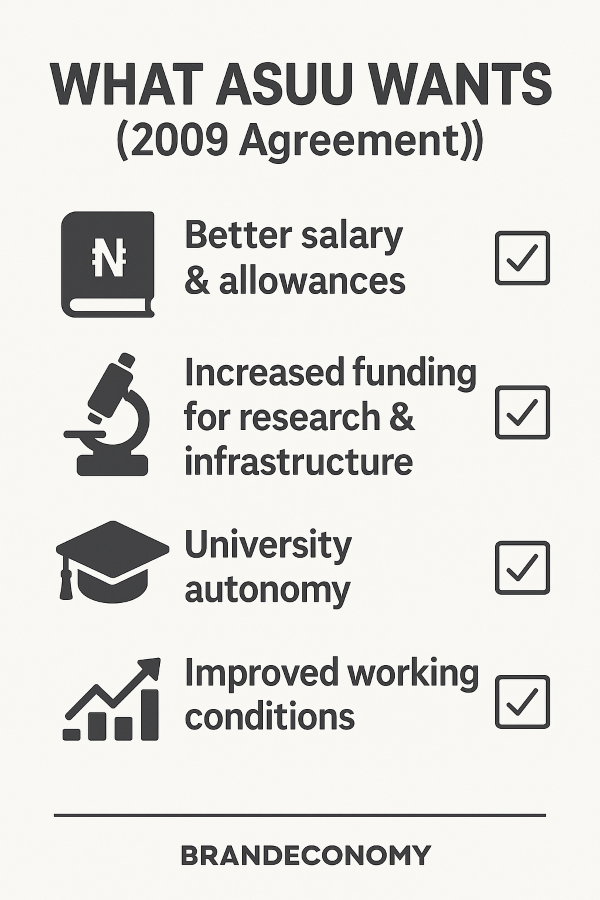ASUU Rejects FG Loan Scheme, Demands Implementation of 2009 Agreement

The Academic Staff Union of Universities (ASUU), University of Jos chapter, has rejected the Federal Government’s newly introduced Tertiary Institutions Staff Support Fund, describing it as a “trap” that fails to address the real issues confronting Nigeria’s university system.
The Federal Government had announced the initiative two weeks ago as a welfare and empowerment scheme designed to provide loans to academic and non-academic staff across Nigeria’s tertiary institutions. According to Minister of State for Education, Dr. Tunji Alausa, the scheme was conceived as a direct response to the welfare and professional development needs of the sector’s workforce.
ASUU’s Response: “A Poisoned Chalice”
At a press briefing in Jos, Prof. Jurbe Molwus, Chairman of ASUU, University of Jos, dismissed the loan scheme as a cosmetic solution.
“Our members do not lack where to find loans; they are already deep in debt. What we need is for government to sign and implement the renegotiated 2009 agreement. That way, our purchasing power will improve, reducing reliance on debts from cooperative societies,” Molwus said.
ASUU further described the loan initiative as a “poisoned chalice”, warning members against participation. Instead, the union insists that government should honour the 2009 renegotiated agreement, which addresses salary structures, funding for universities, and conditions of service.

Context: Why ASUU is Pushing Back
The 2009 FG–ASUU agreement remains the core reference point in Nigeria’s long-running higher education labour disputes. Its key provisions include:
- Improved salary and allowances for lecturers.
- Increased funding for research and infrastructure.
- Autonomy for universities in academic and financial matters.
Repeated delays in implementation have fueled recurring strikes and protests, with lecturers arguing that loans are a short-term palliative that ignores systemic underfunding of higher education.
Wider Implications
- Debt vs. Structural Reform: The loan scheme may ease short-term liquidity for lecturers, but without structural salary reforms, staff welfare will remain precarious.
- Risk of Disruptions: If the standoff persists, universities risk another wave of academic disruptions, which could further erode public trust in the system.
- Economic Context: Inflation, eroded purchasing power, and high interest on personal loans are worsening living conditions for lecturers, making government intervention urgent.
Call to Action
ASUU has urged President Bola Ahmed Tinubu to engage directly with union leadership to resolve the lingering crisis, rather than relying solely on ministerial interventions. The union insists that genuine dialogue and decisive implementation of agreements—not loan schemes—are the way to prevent further breakdown of academic activities.
BRANDECONOMY Takeaway
The rejection of the loan scheme by ASUU underscores a deeper truth: welfare loans cannot replace structural reforms. For Nigeria’s tertiary education to stabilise, government must shift from quick fixes to long-term solutions—starting with full implementation of the 2009 agreement.
If ignored, the cost won’t just be on lecturers’ welfare but on Nigeria’s knowledge economy, global competitiveness, and the future of its students.












